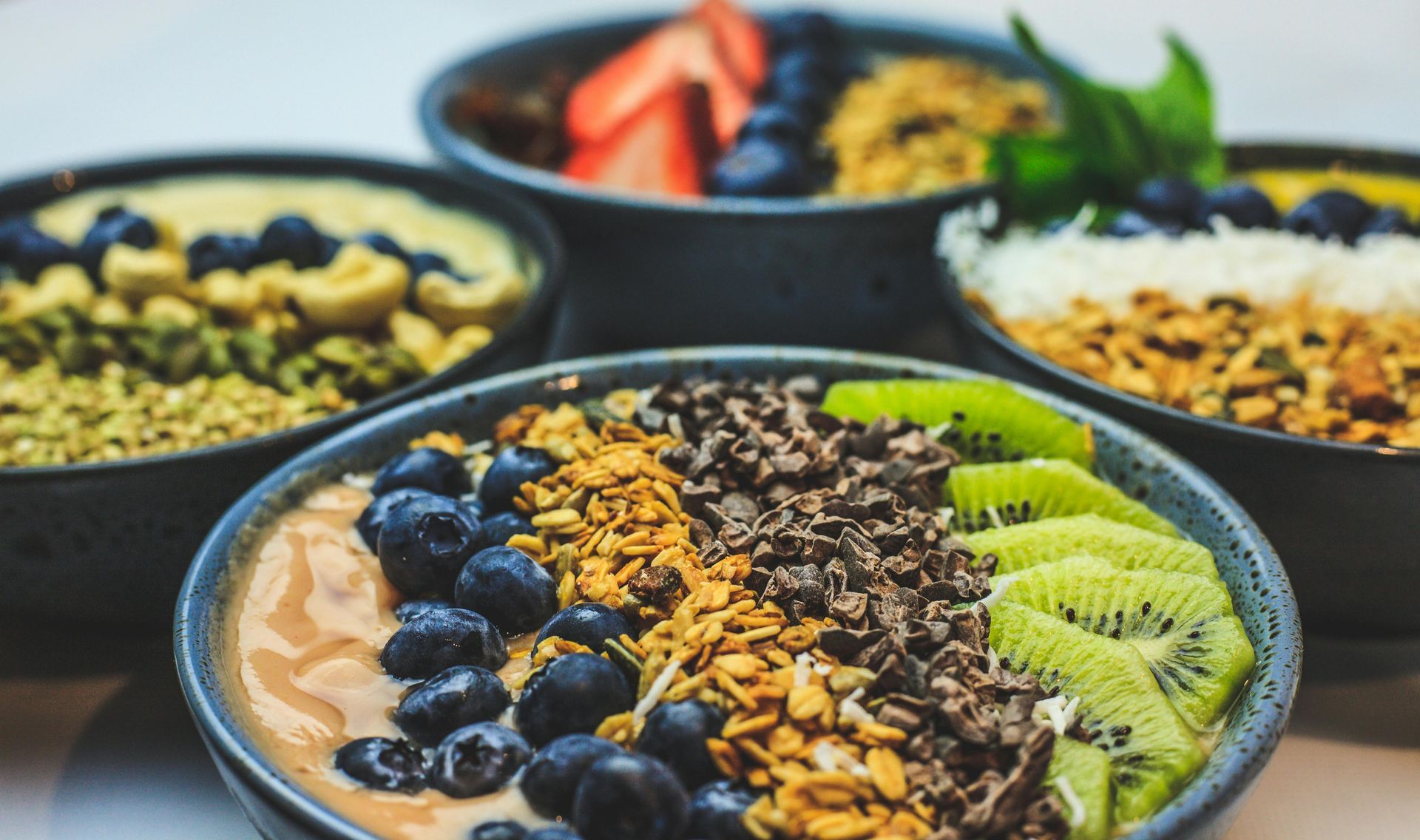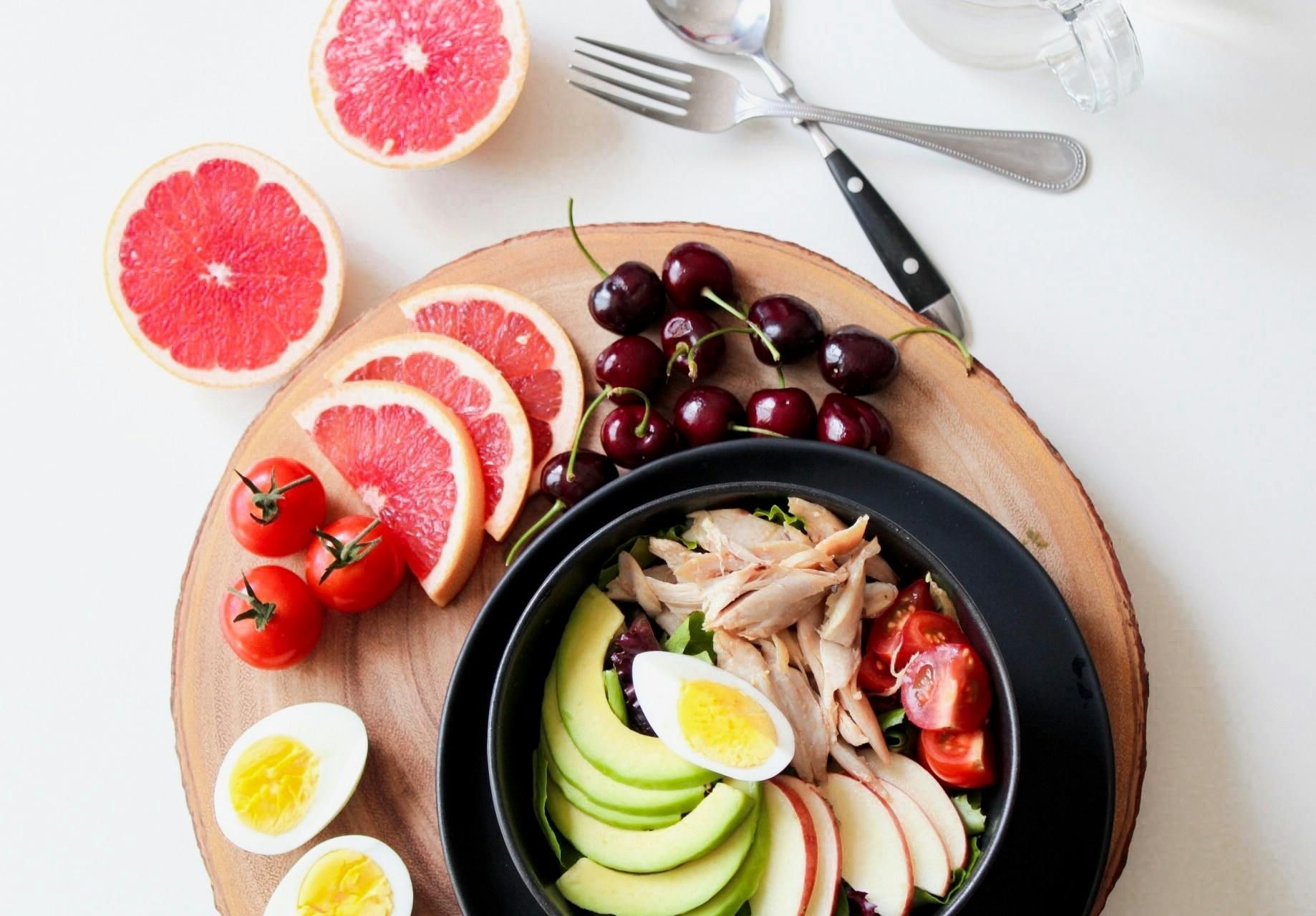The Benefits of a High-Protein Diet: What You Need to Know
Protein is one of the main tenets of a healthy body. For children or adults, protein is an essential component of a diet. It is vital for muscle repair, weight management, and overall health. It helps athletes, supports weight loss, and enhances your diet.
Protein is crucial in building and maintaining muscle mass, improving metabolism, and keeping you full for extended periods. It aids cell repair, supports immune function, and enhances recovery after exercise. Lean meats, fish, eggs, dairy, legumes, nuts, and seeds are excellent protein sources. Whether aiming for muscle growth or weight loss, a balanced intake of protein-rich foods is vital. Want to know more? Read our blog to learn about the benefits of protein and the best protein foods to include in your meals.
Why Protein is Essential for Your Health
Protein is one of the three macronutrients our bodies need to work well. The other two are carbohydrates and fats. The body doesn't store protein like it does fats and carbs. So, it's essential to eat enough protein every day.
Role of Protein in Muscle Growth and Recovery
Protein is essential for muscle repair and growth. After a workout, the body needs protein to repair muscle fibres and promote growth. Consuming high-protein foods post-exercise ensures muscles recover efficiently and become stronger over time.
How Protein Supports Metabolism and Weight Loss
A
high-protein diet can enhance metabolism due to its thermogenic effect. The body burns more calories digesting protein than carbohydrates and fats. Protein also helps maintain lean muscle mass, essential for high metabolism.
The Impact of Protein on Hunger Control
Protein is known to promote satiety, helping to reduce hunger and control cravings. Eating enough protein enables you to avoid unhealthy snacks, making it simpler to maintain a
balanced diet and prevent overeating.
Benefits of a High-Protein Diet
A
high-protein diet offers multiple benefits beyond muscle repair and weight management.
Muscle Growth and Strength
Protein is fundamental for strength training or high-intensity workouts. It provides the essential amino acids to build and maintain lean muscle mass.
Best Sources of Protein for Athletes and Bodybuilders
- Lean meats such as chicken and turkey
- Eggs, which provide a complete amino acid profile
- Dairy products like Greek yoghurt and cottage cheese
- Protein-rich fish like salmon and tuna
Weight Management and Fat Loss
One of the primary benefits of protein is its role in weight loss. Eating more protein can help people lose fat and keep their muscles. Protein also helps reduce levels of the hunger hormone ghrelin, making it easier to control the appetite.
The Role of Protein in Reducing Cravings and Overeating
- Eating a protein-rich breakfast can lead to reduced calorie intake throughout the day.
- Protein helps stabilise blood sugar levels, preventing energy crashes that lead to cravings.
- Consuming protein at every meal supports sustained energy and reduces the likelihood of binge eating.
Supports Overall Health
Beyond fitness and weight management, protein supports various bodily functions.
Protein's Role in Immune Function and Cell Repair
Protein is crucial for producing enzymes, hormones, and immune cells. A diet rich in high-protein foods helps the body fight infections and recover from injuries.
How Protein Contributes to Healthy Skin, Hair, and Nails
Collagen, a type of protein, is essential for maintaining skin elasticity and reducing signs of ageing. Additionally, keratin, another protein, plays a key role in healthy hair and nails.
Best Sources of Protein
Choosing the right protein sources is essential for maintaining a well-balanced diet.
Animal-Based Protein Sources
Animal proteins are complete. They have all the essential amino acids our bodies need.
- Lean meats: Chicken, turkey, and beef provide high-quality protein.
- Seafood: Fish like salmon and sardines offer protein and healthy omega-3 fatty acids.
- Dairy products: Cheese, milk, and yoghurt supply protein, calcium, and probiotics.
- Eggs: A versatile and nutrient-dense protein source.
Plant-Based Protein Sources
Plant-based proteins are excellent options for those following vegetarian or vegan diets.
- Legumes: Beans, lentils, and chickpeas are rich in protein and fibre.
- Nuts and seeds: Almonds, chia, and sunflower seeds offer healthy fats and protein.
- Soy-based options: Tofu, tempeh, and edamame provide high amounts of plant protein.
- Whole grains: Quinoa and brown rice contribute to overall protein intake.
How to Balance Protein Intake
It is essential to balance protein consumption throughout the day for maximum benefit.
How Much Protein You Need Daily Based on Activity Levels
- Sedentary individuals require about 0.8g of protein per kg of body weight.
- Active individuals need 1.2-2.0g of protein per kg of body weight, depending on their workout intensity.
- Athletes and bodybuilders may require even higher amounts to support muscle recovery.
Combining Protein Sources for Complete Amino Acid Profiles
- Combining different protein sources is recommended to ensure the body gets all essential amino acids.
- Pairing legumes with grains, such as beans and rice, provides a complete protein package.
- Adding nuts or seeds to smoothies and salads boosts protein intake.
- Incorporating a mix of animal and plant-based proteins ensures a well-rounded diet.
Potential Risks of Excessive Protein Intake
While a high-protein diet has numerous benefits, consuming too much protein may lead to specific health issues.
Possible Side Effects of High Protein Intake
- Kidney strain: Eating too much protein can stress the kidneys. This is especially true for people who already have kidney problems.
- Digestive discomfort: High-protein diets low in fibre may cause constipation or bloating.
- Nutritional imbalances: Eating only protein-rich foods can cause deficiencies. Fruits, vegetables, and whole grains provide essential nutrients.
To avoid these problems, balance your protein intake with healthy foods. Also, drink enough water.
Include a Protein Diet In Your Routine Today!
A
high-protein diet has many health benefits. It helps with muscle growth, weight management, and overall wellness. Mixing the
best protein foods enables you to meet your daily needs. This way, you enjoy a varied and healthy diet.
Focus on high-quality protein to boost your health and reach your fitness goals. Balance your intake and maintain a well-rounded diet.
Add more protein to your diet today. You'll feel the benefits of a high-protein lifestyle!


